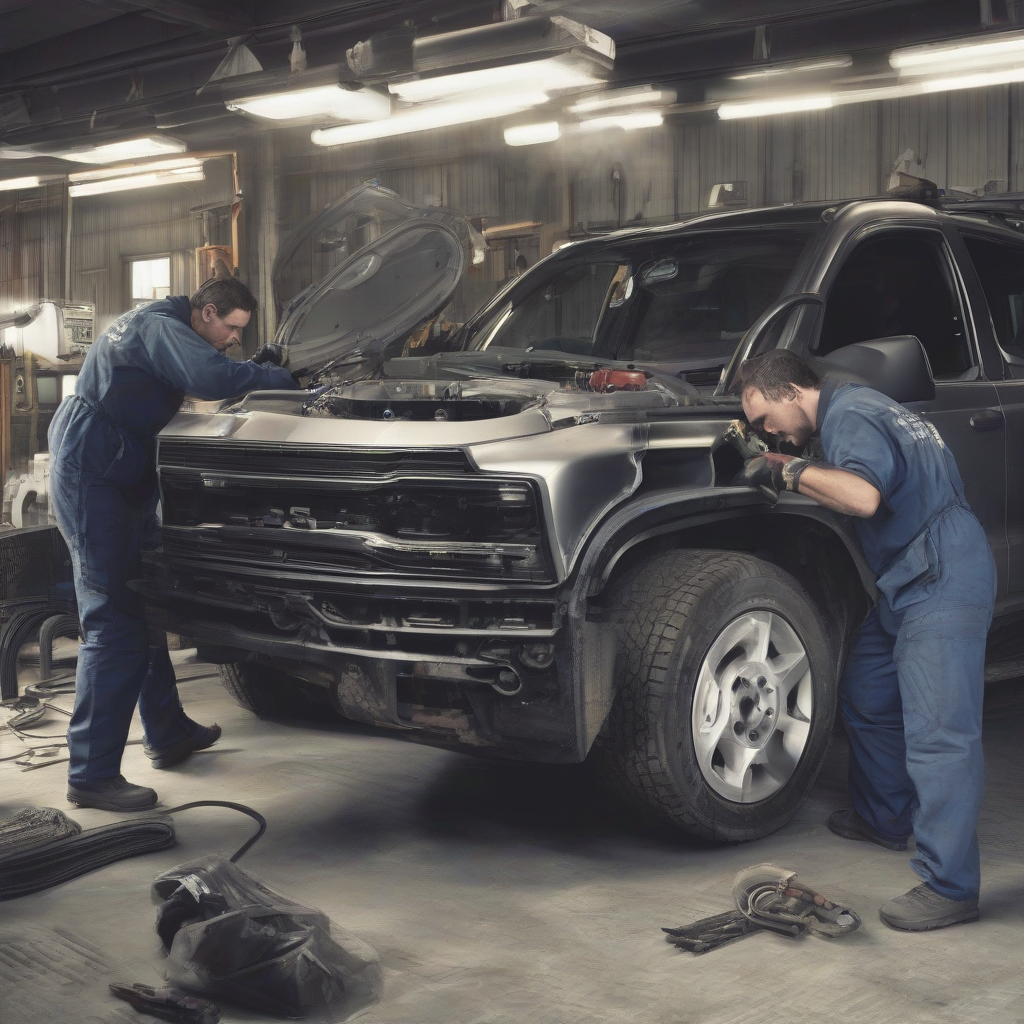Automotive Diesel Technician: A Comprehensive Guide to a Rewarding Career

Automotive Diesel Technician: A Comprehensive Guide to a Rewarding Career
What is an Automotive Diesel Technician?
An automotive diesel technician is a skilled professional who specializes in the maintenance, repair, and diagnosis of diesel engines. These engines power a wide range of vehicles, including trucks, buses, construction equipment, and agricultural machinery. Diesel technicians play a crucial role in keeping these vehicles running smoothly and efficiently.
Job Responsibilities
- Inspecting and diagnosing diesel engine problems
- Performing routine maintenance tasks, such as oil changes, filter replacements, and tune-ups
- Repairing and replacing engine components, including injectors, fuel pumps, turbochargers, and exhaust systems
- Using diagnostic equipment to identify and troubleshoot engine faults
- Following safety procedures and regulations
- Maintaining accurate records of repairs and maintenance
- Working independently and as part of a team
- Staying up-to-date on the latest diesel engine technology and regulations
Required Skills and Qualifications
- Strong mechanical aptitude and problem-solving skills
- Knowledge of diesel engine operation, maintenance, and repair
- Proficiency in using diagnostic equipment
- Ability to read and interpret technical manuals and schematics
- Excellent communication and interpersonal skills
- Strong work ethic and attention to detail
- High school diploma or equivalent
- Completion of a diesel technician training program (certificate or associate degree)
- ASE (Automotive Service Excellence) certification (optional but highly recommended)
Education and Training
Formal Training Programs
Formal training programs provide students with a comprehensive foundation in diesel engine technology. These programs cover topics such as:
- Diesel engine fundamentals
- Engine components and systems
- Diagnosis and troubleshooting
- Repair procedures
- Safety and environmental regulations
- Hands-on training with real-world applications
There are various types of diesel technician training programs available, including:
- Vocational schools
- Community colleges
- Technical institutes
- Manufacturer-sponsored training programs
Apprenticeships
Apprenticeships provide on-the-job training under the guidance of experienced diesel technicians. This hands-on experience allows apprentices to learn practical skills and gain valuable real-world knowledge.
Continuing Education
Diesel engine technology is constantly evolving, so it's essential for technicians to stay current with the latest advancements. Continuing education opportunities include:
- Industry conferences and workshops
- Online courses and webinars
- Manufacturer-specific training programs
Career Outlook
The demand for qualified diesel technicians is expected to remain strong in the coming years. As the economy grows and transportation needs increase, there will be a continued need for skilled professionals to maintain and repair diesel engines.
Job Opportunities
Diesel technicians can find employment in a variety of industries, including:
- Trucking companies
- Bus companies
- Construction equipment dealerships
- Agricultural equipment manufacturers
- Government agencies
- Independent repair shops
Salary and Benefits
Salaries for diesel technicians vary depending on experience, location, and industry. Entry-level positions typically offer competitive starting salaries, with the potential for significant earnings as technicians gain experience and expertise. Many employers also offer a comprehensive benefits package, including:
- Health insurance
- Dental insurance
- Vision insurance
- Retirement plan
- Paid time off
- Disability insurance
Work Environment
Diesel technicians typically work in a shop or garage environment. They may work with a variety of tools and equipment, including:
- Hand tools
- Power tools
- Diagnostic equipment
- Lifting equipment
The work can be physically demanding, as it often involves lifting heavy objects and working in cramped spaces. Diesel technicians also need to be comfortable working with fluids, such as oil and fuel.
Safety Precautions
Diesel technicians work with heavy machinery and hazardous materials, so it's crucial to follow safety procedures and regulations. Some common safety precautions include:
- Wearing appropriate personal protective equipment (PPE), such as gloves, safety glasses, and hearing protection
- Following proper lifting techniques to prevent injuries
- Working in a well-ventilated area to avoid exposure to harmful fumes
- Using caution when working with electrical systems and high-pressure components
- Properly disposing of hazardous waste materials
Challenges and Rewards
Challenges
- Physically demanding work
- Exposure to hazardous materials
- Long hours and irregular work schedules
- Staying up-to-date on rapidly evolving technology
Rewards
- Job satisfaction from solving complex problems
- Making a tangible contribution to the transportation industry
- Opportunities for advancement and career growth
- Competitive salaries and benefits
- The ability to work with interesting and challenging technology
Conclusion
A career as an automotive diesel technician offers a rewarding and challenging path for individuals with a passion for mechanics and a desire to contribute to the transportation industry. By pursuing formal training, gaining practical experience, and staying current with industry advancements, diesel technicians can build successful careers and make a lasting impact on the world.
What's Your Reaction?

















